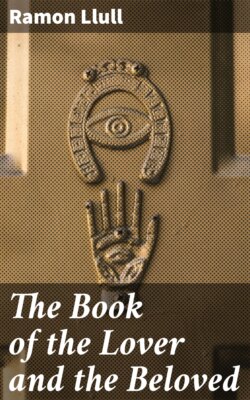Читать книгу The Book of the Lover and the Beloved - Ramon Llull - Страница 7
На сайте Литреса книга снята с продажи.
III
ОглавлениеTable of Contents
We have no wish to add to these few notes a lengthy commentary upon the substance of a book which, probably for the first time, is accessible to those who read only English. Scholars have debated over Lull’s probable debt to sufism, on the one hand, and, on the other, his influence upon the long line of mystics who have followed him. There is much still to be said upon these and other topics, much that will throw fresh light on Spain and Spanish mysticism both. But in this essay enough has been said of Lull’s life and works to form the indispensable prelude to his Book. For the present, therefore, we prefer to stand back, and allow Lull’s ardent spirit to work its miracles still. Work them it surely must. Writing in his native ‘catalan-provenzal,’ that he might appeal, not to learned men, but to the people, by the people he is read still. He needs none of the ‘Expositions,’ such as were written in his own age and as late as the seventeenth century. Here and there a passage confuses the modern mind by its mediæval subtleties; or the frequent references to the will, understanding, and memory (so common in most of the mystics) may puzzle the simple reader until he has learned to interpret them. But the vast majority of the three hundred and sixty-six ‘verses,’ put together to be read one on each day of the year, may still so be read. They speak to the twentieth century as clearly, picturesquely, and forcibly as they spoke to the thirteenth. Have we perhaps even more need of their message?
They speak of elementals. Like his great successors St. Teresa and St. John of the Cross, Lull knows no Master but his Beloved, Jesus Christ; he surpasses them perhaps in this, that he is never unmindful of the world his Beloved came to save. His is no cloistered love. He could never say, with St. John of the Cross, ‘Live in the world as though there were in it but God and thy soul.’ Ringing for ever in his ears is the Beloved’s last command.
Never was ‘Love’s regal dalmatic’ worn with more grace and fitness than by this ‘jester,’ this ‘fool of love.’ It is no compliment to Lull to call him, as the great scholar Menéndez Pelayo does, a ‘Spanish Jacopone da Todi.’ Jacopone, it is true, sang of love with unsurpassable fervour:
Amor, amore, tanto tu me fai,
Amore, amor, che nol posso patire;
Amor, amore, tanto me te dai,
Amor, amore, ben credo morire;
Amore, amore, tanto preso m’hai,
Amor, amore, famme ’n te transire;
Amor, dolce languire,
Amor mio desioso,
Amor mio delettoso,
Annegame en amore.
But Lull, who, like Jacopone, owed most of his fervour, under God, to St. Francis, has a note of his own, no less deep, no less pure. His key is perhaps in that eloquent definition, which has been slightly expanded in translation that the full force of every phrase may be felt:
‘What meanest thou by love?’ said the Beloved. And the Lover answered: ‘It is to bear on one’s heart the sacred marks and the sweet words of the Beloved. It is to long for Him with desire and with tears. It is boldness. It is fervour. It is fear. It is the desire for the Beloved above all things. It is that which causes the Lover to grow faint when he hears the Beloved’s praises. It is that in which I die daily, and in which is all my will.’
Lull might well have written, as did a late Franciscan, John of the Angels, of the ‘Triumphs of the Love of God.’
Love impels him to tread the Mystic Way ‘in search of his Beloved.’ Much of his Book, therefore, deals with the Mystic Life. But it has none of the exclusiveness of the Living Flame of Love and the Spiritual Canticle. There are passages for the beginner as well as for the proficient, parables in three lines for the plain man, sermons in phrases, reflections which, by their very simplicity, kindle the devotion of the wayfaring man as he reads them. As we read the brief records of imaginary conversations between the Lover and ‘those who asked him concerning his Beloved,’ we can imagine ourselves in some African coast-town where the stranger who has just landed is being pressed, by the surging crowd which surrounds him, to give reasons for his faith. The calm and confident answers supply the secret of Lull’s power.
Then we come upon some quaintly-worded, paradoxical phrase which only reflection will illumine and meditation make real. And we know that we are following in the path of Lull when he composed his treatise. For it was the fruit, not of subtleties, but of silence. ‘He would engage in prayer,’ runs the preface, ‘and meditate upon God and His virtues, after which he would write down the outcome of his contemplation.’ And again, more concretely: ‘At midnight he arose, looked out upon the heavens and the stars, and cast away from him all thoughts of the world.’
So, between meditation and prayer, he wrote this masterpiece in little, signed it with his Beloved’s Sign, and sent it out to a world which he longed to save. It has been potent in the past, and we may believe that it will be so again. For it is as eternal and universal in its appeal as the Ideal Life which it extols. Nurtured by experience, watered by faith, it is rooted and grounded in love.
